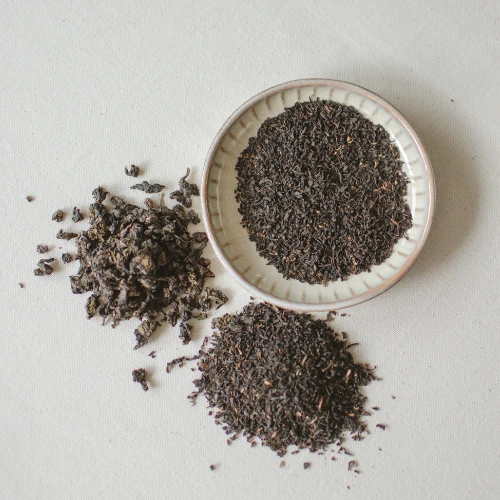Black Tea Benefits for Seniors
As we age, it becomes increasingly important to prioritize our health and well-being. One simple but effective way to do this is by incorporating black tea into our daily routine. Not only does it offer a flavorful and satisfying alternative to other beverages, but it also provides a multitude of benefits specifically tailored to the needs of seniors.
From improving heart health to reducing the risk of cognitive decline, the advantages of black tea are hard to ignore. Let’s delve into the various benefits of black tea for seniors, leaving you with a newfound desire to make it a staple in your own life.
Why Black Tea is Popular
Black tea is one of the most popular and beloved beverages in the world. From India to Britain to the United States, people of all cultures and backgrounds have been enjoying this rich and flavorful tea for centuries. But what is it that makes black tea so special?
One reason why black tea is so popular is its rich flavor profile. Unlike other teas that can be light and delicate, black tea has a robust and full-bodied taste that can stand up to milk, sugar, and other additives. This makes it a popular choice for those who enjoy a more substantial and satisfying cup of tea.
Additionally, the high tannin content in black tea gives it a slightly bitter taste that some people find addictive.
Another reason for black tea’s popularity is its many health benefits. Black tea is rich in antioxidants, which can help reduce the risk of chronic diseases such as heart disease, cancer, and diabetes.
It also contains caffeine, which can boost energy levels and improve mental clarity. Furthermore, black tea is a natural source of fluoride, which is essential for maintaining strong teeth and bones.
Black tea’s popularity can also be attributed to its versatility. It can be enjoyed hot or cold, and it pairs well with a variety of foods and flavors. Some people even use black tea as a cooking ingredient, adding it to marinades, sauces, and baked goods for a unique and flavorful twist.
Lastly, black tea has a rich cultural history that has helped to make it a beloved beverage around the world. In India, black tea is an essential component of the country’s culture and is enjoyed by millions of people every day. In Britain, black tea is a symbol of tradition and is often served with milk and sugar. And in China, black tea has a long and storied history dating back thousands of years.
Antioxidant Properties of Black Tea

Black tea is well-known for its rich flavor and energizing effects, but it also has numerous health benefits, especially due to its high antioxidant content.
Antioxidants are compounds that protect our cells from damage caused by free radicals. These unstable molecules can cause oxidative stress in our bodies, leading to chronic diseases such as cancer, diabetes, and heart disease. Black tea is rich in antioxidants called flavonoids, which can help neutralize free radicals and reduce the risk of these diseases.
One of the main flavonoids found in black tea is called catechins. These compounds have been shown to have powerful antioxidant properties, and may even have anticancer effects. In fact, some studies have suggested that drinking black tea may be associated with a reduced risk of certain types of cancer, such as breast and ovarian cancer.
Another type of flavonoid found in black tea is called theaflavins. These compounds are formed during the fermentation process that black tea undergoes, and are responsible for its unique flavor and color. Theaflavins have been shown to have antioxidant and anti-inflammatory properties, and may also help lower cholesterol levels.
In addition to catechins and theaflavins, black tea also contains other antioxidants such as Thearubigins and gallic acid. These compounds have been shown to have a variety of health benefits, including improving heart health and reducing the risk of cognitive decline.
Nutrition Facts of Black Tea
| Nutrient | Amount per 8 oz. (240 mL) of Black Tea |
| Calories | 2 |
| Total Fat | 0g |
| Sodium | 0mg |
| Total Carbohydrates | 0g |
| Protein | 0g |
| Vitamin B2 (Riboflavin) | 0.02mg |
| Potassium | 25mg |
| Flavonoids | 90-300mg |
It’s worth noting that the nutrient content of black tea may vary slightly depending on factors such as brewing time, water temperature, and the type of tea leaves used. However, these values should give you a general idea of the nutritional content of an 8 oz. cup of black tea.
Vitamins and Minerals in Black Tea
| Vitamin/Mineral | Amount per 8 oz. serving |
| Vitamin B2 (Riboflavin) | 0.03 mg |
| Vitamin B1 (Thiamine) | 0.02 mg |
| Vitamin B6 | 0.01 mg |
| Folate | 1.0 mcg |
| Vitamin B3 (Niacin) | 0.05 mg |
| Vitamin K | 0.2 mcg |
| Calcium | 2.4 mg |
| Iron | 0.2 mg |
| Magnesium | 1.8 mg |
| Potassium | 25.6 mg |
| Zinc | 0.02 mg |
Health Benefits of Black Tea for Seniors

As we age, our bodies go through many changes, and maintaining good health becomes increasingly important. Fortunately, black tea can be a valuable tool in promoting health and well-being for seniors. Here are just a few of the health benefits of black tea for seniors:
Heart Health
Black tea has been shown to have a positive effect on heart health. Studies have found that regular consumption of black tea may help reduce the risk of heart disease, stroke, and high blood pressure. This is due in part to the flavonoids found in black tea, which have antioxidant and anti-inflammatory properties.
Cognitive Function
Black tea contains caffeine and L-theanine, which can help improve cognitive function, including memory and attention. Additionally, some studies have suggested that the flavonoids found in black tea may help protect against age-related cognitive decline.
Bone Health
As we age, our bones become more brittle and prone to fractures. Drinking black tea may help promote bone health, thanks to its high content of fluoride and phytochemicals such as flavonoids and polyphenols. These compounds may help increase bone density and reduce the risk of fractures.
Digestive Health
Black tea has been used for centuries as a natural remedy for digestive issues such as bloating, cramping, and constipation. It contains tannins, which have an astringent effect and can help soothe the digestive tract.
Immune System
The polyphenols found in black tea have been shown to have immune-boosting properties. This can be especially important for seniors, whose immune systems may be weaker and more susceptible to illness.
Oral Health
Black tea has been shown to have a positive effect on oral health, thanks to its high content of fluoride and catechins. These compounds can help prevent tooth decay, gum disease, and bad breath.
Overall, black tea can be a valuable addition to a senior’s diet, helping to promote overall health and well-being. It’s important to note that while black tea can have many health benefits, it should be consumed in moderation, as excessive consumption can have negative effects on health.
Cognitive Benefits of Black Tea for Seniors
As we age, our cognitive abilities can begin to decline, making it more difficult to perform everyday tasks and remember important information. Fortunately, black tea may be able to help seniors maintain their cognitive function and prevent age-related decline. Here are some of the cognitive benefits of black tea for seniors:
Improved Attention
Black tea contains both caffeine and L-theanine, which work together to improve attention and focus. The caffeine stimulates the central nervous system, while the L-theanine helps to calm and relax the mind, leading to improved concentration.
Enhanced Memory
Several studies have suggested that drinking black tea regularly can improve memory function. This is thought to be due to the presence of flavonoids in black tea, which have been shown to improve brain function and memory retention.
Reduced Risk of Cognitive Decline
Some research has suggested that the flavonoids in black tea may help reduce the risk of cognitive decline in seniors. A study published in the American Journal of Clinical Nutrition found that regular consumption of flavonoid-rich foods, including black tea, was associated with a reduced risk of cognitive decline in older adults.
Increased Mental Alertness
In addition to improving attention and memory, black tea may also increase mental alertness. This can be particularly important for seniors who may experience fatigue or drowsiness during the day.
Improved Mood
Black tea has been shown to have a calming effect on the mind and body, which can help improve mood and reduce feelings of anxiety or depression. This can be especially important for seniors who may be dealing with age-related stress or mental health issues.
Overall, black tea can be a valuable tool for seniors looking to maintain their cognitive function and prevent age-related decline. It’s important to note that while black tea can have many cognitive benefits, it should be consumed in moderation, as excessive consumption can have negative effects on health.
Other Benefits of Black Tea for Seniors
Black tea is not only a delicious and refreshing beverage but also has many health benefits that make it an excellent choice for seniors. In addition to the cognitive benefits we discussed earlier, black tea has several other benefits that can improve seniors’ quality of life.
One of the benefits of black tea is that it can improve heart health. The flavonoids present in black tea can help reduce the risk of cardiovascular diseases by improving blood flow and reducing inflammation. This can lower the risk of stroke and heart attack in seniors.
Black tea can also aid digestion and relieve gastrointestinal problems. The tannins in black tea help regulate the digestive system by reducing inflammation and promoting the growth of good bacteria in the gut. This can be especially beneficial for seniors who may experience digestive issues such as bloating, constipation, or diarrhea.
Furthermore, black tea has anti-inflammatory properties that can reduce pain and inflammation throughout the body. This can be beneficial for seniors who suffer from arthritis, joint pain, or other inflammatory conditions.
Another benefit of black tea is that it can help improve bone health. The phytochemicals present in black tea can increase bone density and reduce the risk of osteoporosis, a condition that weakens bones and increases the risk of fractures. This is particularly important for seniors who may be at a higher risk of developing osteoporosis due to aging.
In addition to these health benefits, black tea can also be a mood enhancer. The caffeine present in black tea can improve mood and cognitive function by increasing alertness and reducing fatigue. This can be particularly helpful for seniors who may experience feelings of lethargy or depression.
Finally, black tea has been shown to have antibacterial properties that can help prevent infections and boost the immune system. This can be particularly important for seniors who may have a weaker immune system and be more susceptible to infections.
How to Incorporate Black Tea into a Senior’s Diet
For seniors, incorporating black tea into their diet can provide a range of health benefits. However, it can be challenging to know how to add it to their daily routine. Here are some tips on how to incorporate black tea into a senior’s diet:
Start with small amounts
Seniors who are new to black tea should start with a small amount and gradually increase the quantity over time. This will help them adjust to the taste and avoid any potential side effects.
Use it as a substitute
Black tea can be used as a substitute for coffee, which is often high in caffeine. Seniors can swap their morning coffee for a cup of black tea to reduce their caffeine intake.
Add it to smoothies
Black tea can be added to smoothies for a delicious and healthy beverage. It can also be combined with other ingredients, such as fruits, vegetables, and yogurt, to create a nutritious snack.
Use it as a marinade
Black tea can be used as a marinade for meats, fish, and vegetables. It adds a unique flavor and can help to tenderize the food.
Enjoy it with meals
Black tea can be enjoyed with meals as a refreshing beverage. Seniors can pair it with their favorite foods, such as sandwiches, soups, and salads.
Experiment with flavors
There are a variety of black tea flavors available, such as Earl Grey, chai, and Darjeeling. Seniors can experiment with different flavors to find one that they enjoy.
Incorporating black tea into a senior’s diet can provide a range of health benefits. By starting with small amounts, using it as a substitute, adding it to smoothies and marinades, enjoying it with meals, and experimenting with flavors, seniors can easily add black tea to their daily routine.
Possible Side Effects of Black Tea
While Black tea is generally considered safe, there are some possible side effects that seniors should be aware of. It is important to note that these side effects are usually mild and temporary.
One possible side effect of black tea is caffeine sensitivity. Seniors who are sensitive to caffeine may experience jitters, insomnia, or headaches after consuming black tea. It is important to monitor caffeine intake and limit it to a moderate amount.
Another potential side effect is digestive discomfort. Black tea can be acidic, and consuming it on an empty stomach may lead to stomach irritation or acid reflux. Seniors with gastrointestinal issues should be cautious and consume black tea with food.
In rare cases, some seniors may be allergic to black tea. Symptoms of an allergic reaction may include hives, itching, and difficulty breathing. If any of these symptoms occur after consuming black tea, seek medical attention immediately.
Finally, black tea may interact with certain medications, such as blood thinners or beta-blockers. Seniors who are taking medication should speak to their doctor before adding black tea to their diet.
What does the research say?
In this study, researchers wanted to figure out whether drinking black tea is good or bad for your health. What they found was pretty interesting!
First, they looked at something called coronary heart disease (CHD), which is a fancy way of saying problems with your heart. They discovered that people who drank three cups or more of black tea each day had a lower risk of CHD. That’s like having a cup of tea with breakfast, lunch, and dinner. The reason behind this might be because black tea has these things called polyphenols that act like antioxidants, which are really good for your heart.
When it came to cancer, they did some experiments in labs and thought that the stuff in black tea called flavonoids might help reduce the risk. But when they checked real people in big studies, they couldn’t say for sure if black tea prevents cancer. However, there’s some hope that it might help a little with colorectal cancer, which is a type of cancer in your gut.
Now, let’s talk about your bones. They found that drinking black tea could be good for your bones, like making them stronger. But they didn’t have a lot of studies to be totally sure about it.
When it comes to your teeth, black tea might not do much to stop plaque (the stuff that sticks to your teeth and can cause cavities), but it can help with fluoride, which is like a superhero that fights tooth decay. So, drinking tea can actually protect your teeth from getting cavities.
The good news is that black tea doesn’t seem to be harmful in normal amounts. It won’t dehydrate you unless you drink tea with lots and lots of caffeine, like more than 250 milligrams in a cup. But for most people, tea is a safe way to stay hydrated.
Lastly, if you’re worried about your brain, having some caffeine from tea can actually make you think better, although they didn’t have a ton of people in their studies to be super sure about it. And don’t worry, drinking tea won’t mess up your iron levels, unless you already have an iron problem.
So, in a nutshell, this study found that drinking black tea can be pretty good for you. It can help your heart, bones, and teeth, and it won’t hurt you unless you go overboard with caffeine. So, enjoy your cup of black tea and stay healthy!
Conclusion
Black tea can provide numerous benefits for seniors, from promoting cognitive function to reducing the risk of chronic diseases. While there may be potential side effects to be aware of, they can often be avoided by consuming black tea in moderation and consulting with a healthcare professional. With its rich history and variety of flavors, black tea can be a delicious and healthy addition to any senior’s diet.
What are some of your favorite ways to enjoy black tea? Do you have any tips for incorporating it into a daily routine? Let me know in the comments below.

